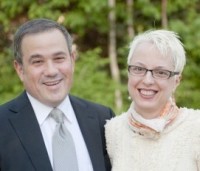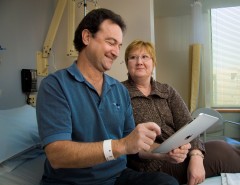 For most people, getting involved with a cause means thinking about what type of organization they’d like to support. But this is a story about what happens when a cause selects you – taps you on the shoulder and asks you to engage in battle.
For most people, getting involved with a cause means thinking about what type of organization they’d like to support. But this is a story about what happens when a cause selects you – taps you on the shoulder and asks you to engage in battle.
It began in 1998 when my wife Amy, then 40, was diagnosed with late-stage ovarian cancer. Our two daughters were 5 years and 15 months old. Amy battled for 15 months, and died in 1999. Like many spouses of women who die of cancer too young, my next few years were all about balancing the family boat.
Fast forward to three years later, when I met my current wife, Ruth. We married in 2005 and Ruth adopted my daughters.
Just one year later, Ruth’s mother, Mildred Moorman, was diagnosed with late-stage ovarian cancer and was treated at Dana-Farber by Dr. Ursula Matulonis. (She died earlier this year.) I had the opportunity to share our family’s story at a meeting of the Susan F. Smith Center for Women’s Cancers Executive Council at Dana-Farber.
Always a strong supporter of cancer research, I wanted to do more; to find people like me.

 If you’re supporting a friend or family member who is undergoing cancer treatment, you may not think of yourself as a “caregiver.” It’s a role that can be very rewarding, but also challenging and stressful.
If you’re supporting a friend or family member who is undergoing cancer treatment, you may not think of yourself as a “caregiver.” It’s a role that can be very rewarding, but also challenging and stressful.